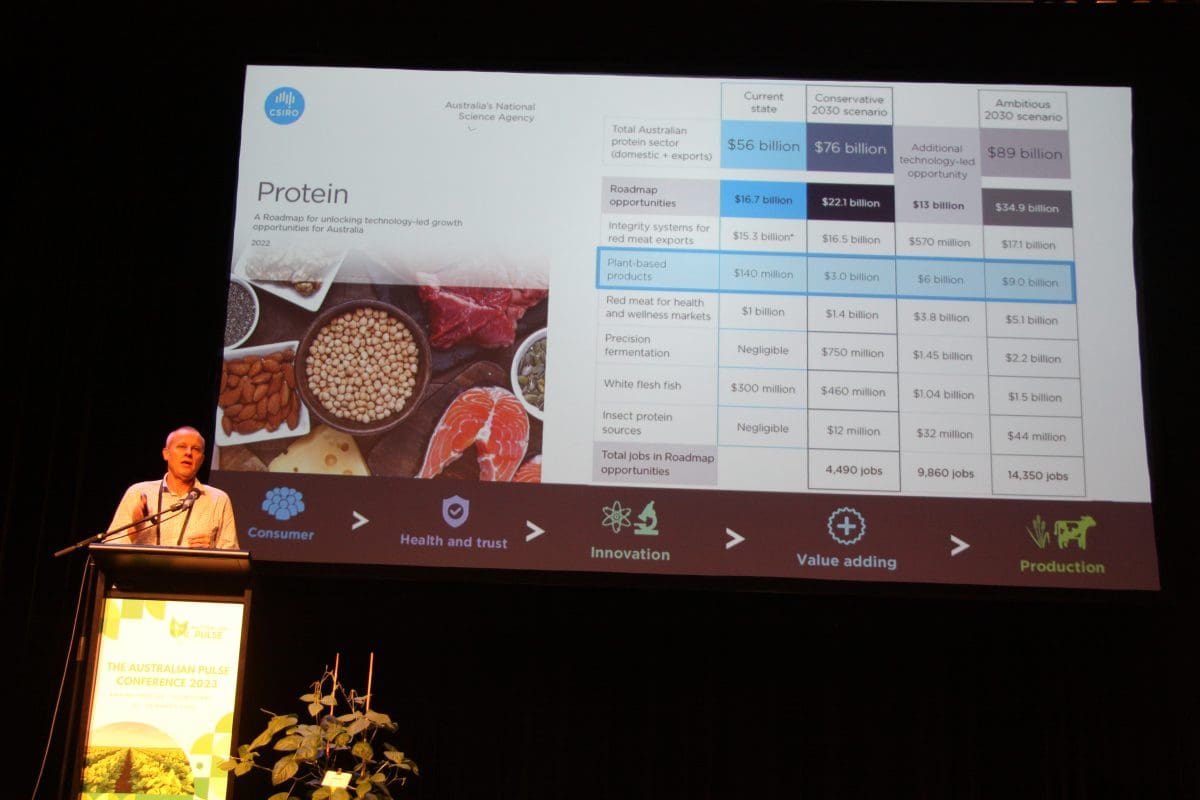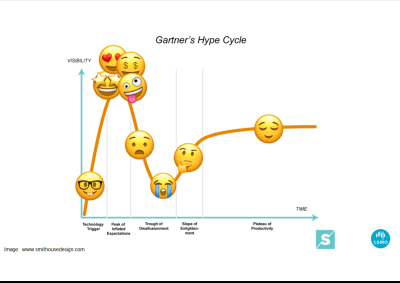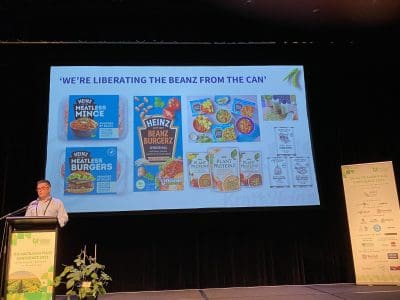
CSIRO’s Future Protein Mission leader Dr Crispin Howitt speaking at APC23.
THE hype about plant-based proteins and what they can do for Australian agriculture may have died down from levels of recent years, but the sector remains well placed for steady growth as dietary habits change.
That was the message from CSIRO’s Future Protein Mission leader Crispin Howitt speaking at the Australian Pulse Conference in Toowoomba last week.
Dr Howitt said Australian Plant Protein, Unigrain and Wide Open Ag were already making headway in the plant-based protein space, and made a hurried mention of v2food, a CSIRO joint venture which last month revealed its products would be manufactured at third-party sites.
“I’m not going to jump in and tell you what they’ve done; that’s not my job; I just want to put it up as an example, and then I can hear you all saying ‘but plant protein meat is dying, it’s dead; the market’s going, investment’s dropping, consumers are running away,” Dr Howitt said.
He refuted this, saying it was Gartner’s Hype Cycle at work in relation to technology adoption into marketplaces, and plant-based proteins could form as much as 22 percent of the world protein market by 2035.
Cycle passes peak
Dr Howitt put forward Webvan, a 1990s US company and one of the world’s first online grocery delivery companies, as an example of Gartner’s Hype Cycle.
After stellar growth, it filed for bankruptcy in the early 2000s, and its key executives moved to Amazon.
“You have a technology trigger; you get the peak of inflated expectations, where everyone’s going ‘wow, this is fantastic, let’s jump on’, then reality hits and we drop into where we are now in the plant protein space, the trough of disillusionment.
“As we move forward, we’ll get to the slope of enlightenment, or sometimes this is called mainstreaming, and it moves forward into products that consumers want and need.
“It evolves; it moves on as you go into that slope of enlightenment.
“It doesn’t mean a death; it just means a re-evolution.”

Dr Howitt said in 2019, 6 million tonnes of plant-based protein isolates and concentrates was produced globally, with 70pc coming out of China.
Combined with population growth, changing dietary trends and ideas that per-head global pulse consumption should be increased sixfold and meat consumption should drop, Dr Howitt said plant-protein production needed to increase greatly.
“To meet the base case, we need 97Mt a year.
“There’s got to be massive investment in protein production facilities as well as all the other things along the chain to get it to consumers.”
By 2050, more than 20pc of the world’s population is expected to be aged over 60.
“We need to think about how do we feed them protein — easily digestible sources — so they can have healthy productive lives.”
Dr Howitt said plant-protein was one of the components in the solution to this challenge, and one that fitted within the growing social conscience, with young people’s preferences a major driver.
He said Australia’s “credentialed production system” made it well placed to capitalise on growing demand.
“We can have sustainable solutions, we can value add products as well as complementing the existing export markets — we’re not saying take away all those export markets — and we can feed into that health-and-wellbeing space where there is a premium.”
He said Australian dietary patterns were changing, with one in three Australians in 2020 saying they were eating less meat, and an additional 10pc not eating meat.
“We want to transform a segment of that commodity market into high-value products underpinned by nutrition and sustainability.”
“In CSIRO, we talk about complementary proteins.
“We have to solve this as a whole agricultural community to deliver enough protein.
“It’s not about meat versus plant versus insect.
“We need more protein: the pie is big enough for everybody to have their share.
Kraft Heinz means business on beans
Kraft Heinz’s Plant Protein Innovation Hub’s international head Juraj Durco also spoke at APC23.
Mr Durco said two of the company’s flagship products — tomato ketchup and baked beans — were plant-based, and the business was keen to value add more pulses globally.

Kraft Heinz’s Juraj Durco talks beans at APC23.
It is already a founding partner in Beans is How, an initiative which includes the Consultative Group on International Agricultural Research and the United Nations Foundation, and came out of the UN’s 2021 COP26 climate-change conference.
“The Beans is How initiative is looking to double consumption in the next five years globally,
“We want to put more legumes on the plate the consumers will love.
“We want to have visible legumes in our products.”
“We want to make sure legumes are prioritised in the Australian diet.
Through its ownership of the New Zealand-based company F. Whitlock & Sons, it owns the Killer Beans label, which complements its Heinz baked beans and Wattie’s range of Beanz, as well as canned legumes.
Mr Durco said properties like emulsification, gelling and colour were all important to get right in food manufacturing, and opportunities existed for Kraft Heinz to get closer to Australian production to ensure legumes with desirable properties were available.
“We have a strong ‘d’ and a small ‘r’.
“We can collaborate even more from grower to manufacturer.”
Through its ABC brand in Indonesia, Kraft Heinz already produces a mungbean drink.
“Beans are a universal ingredient served across the globe in a variety of different ways.
“Our company promise is we will innovate with legumes.”
Grain Central: Get our free news straight to your inbox – Click here

HAVE YOUR SAY